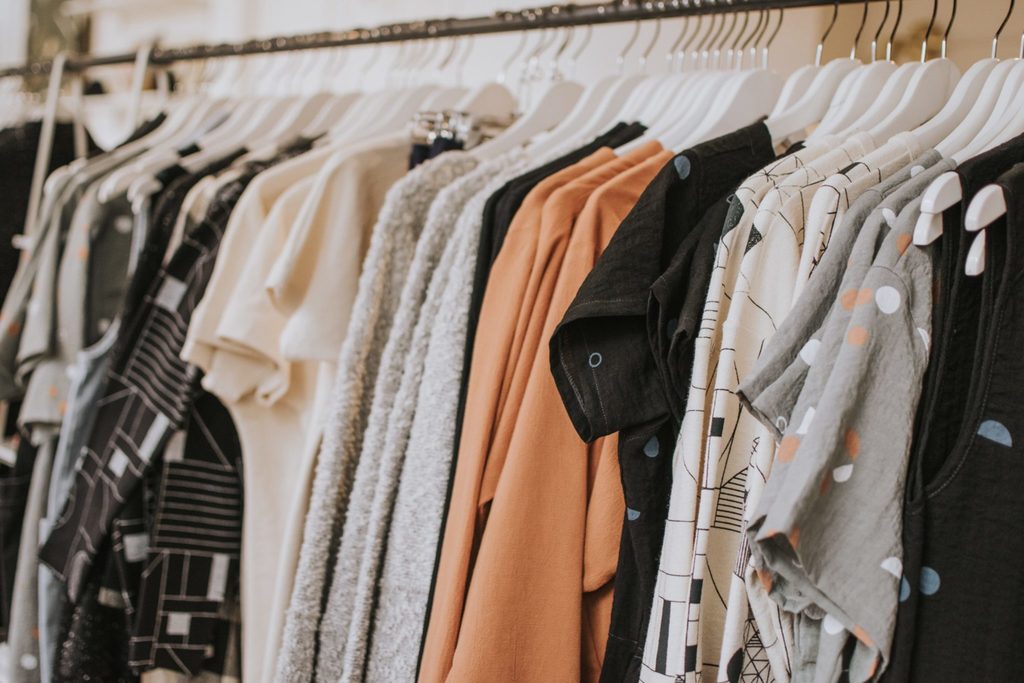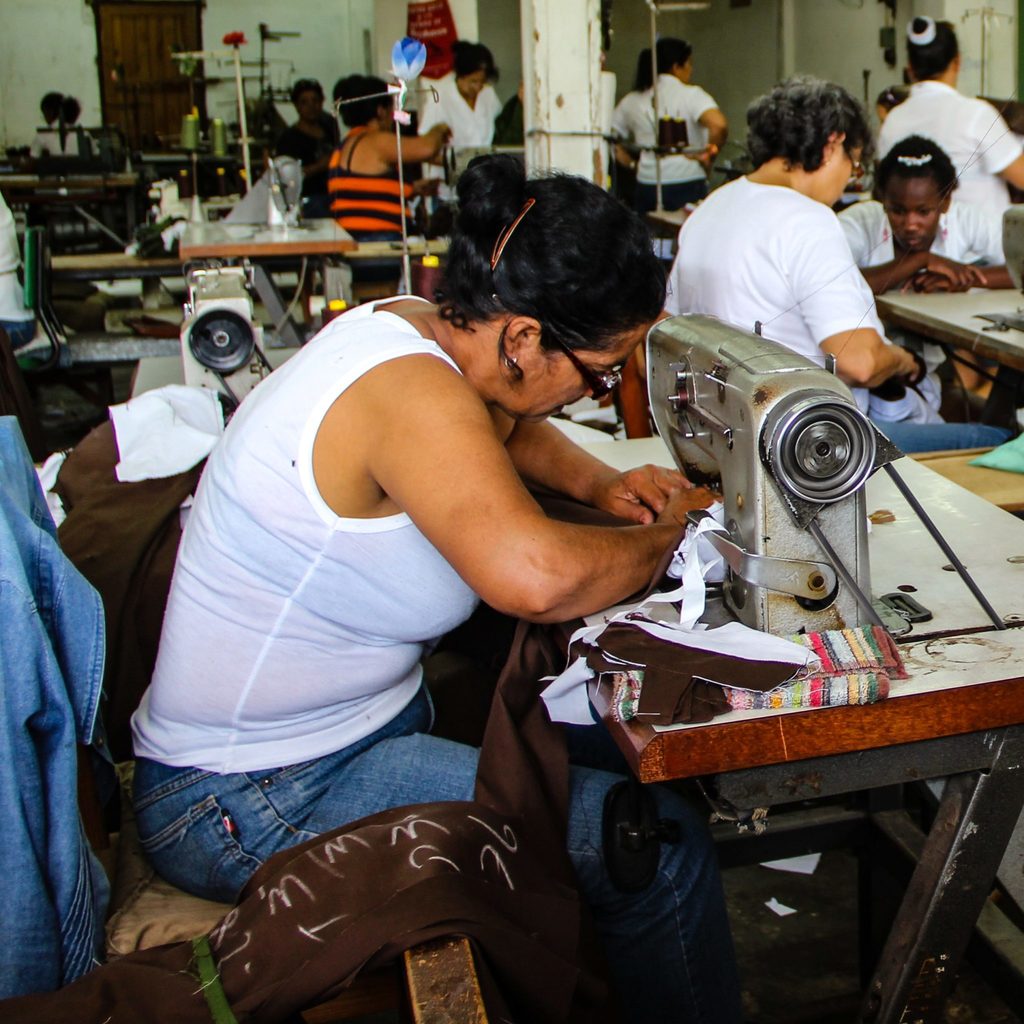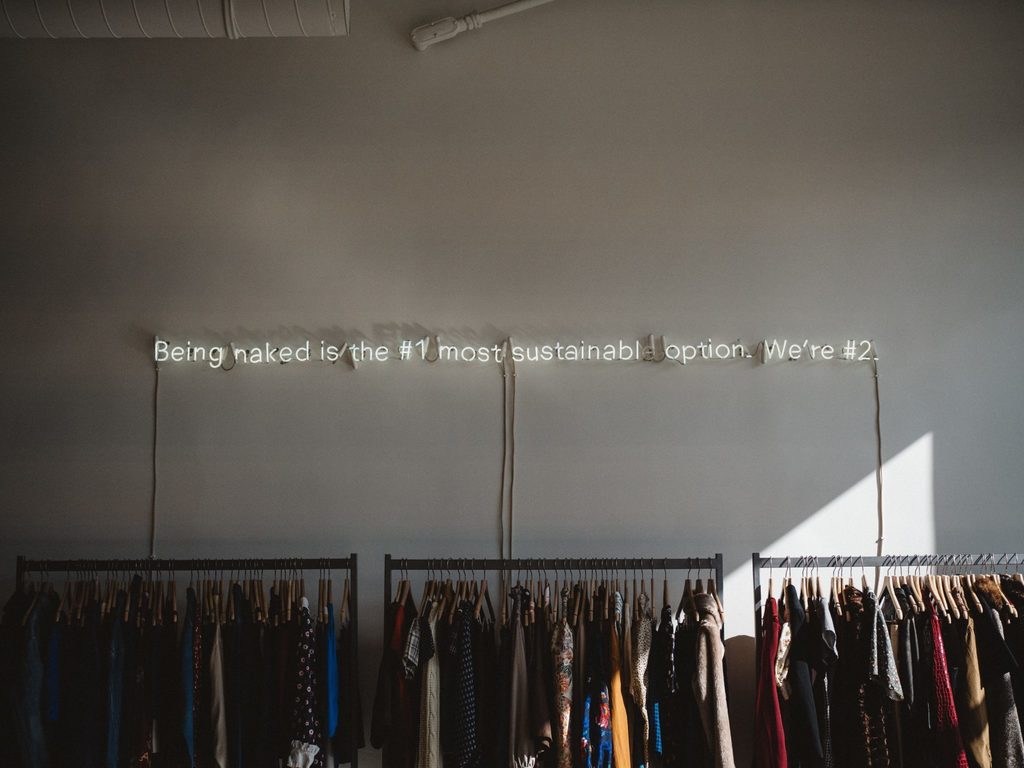Is our desire to look good more important than our planet?
That’s how much clothing an average European consumer will buy in just one year. So, my question to you is this: have we allowed clothing to become our new single-use product?

What do we mean when we use the term ‘fast fashion’?
Fast fashion is defined as “inexpensive clothing produced rapidly by mass-market retailers in response to the latest trends.” In other words, fast fashion is clothing produced in a non sustainable manner. With its main aim/ focus being on profit rather than the environment. High street companies will follow the latest trends and then recreate them. Mainly with cheap material, cheap manual labor, and even cheaper ethics. All of this, sadly, in the aim to provide inexpensive clothing options at an unprecedented rate.
It doesn’t matter who we are, or what we do, fast fashion is affecting a lot more than just the size of our wardrobes. In a committee meeting in Parliament last year, it was stated that a shirt made from polyester has a 5.5kg carbon footprint! That is only one shirt, and due to the rapid increase of use in this material (and many other man made alternatives) we are seeing a spike in how big the carbon footprint is in the global fashion industry. In 2019, it was found that the fashion industry is estimated to produce 1.2 billion tonnes of CO2e (equivalent) a year. Meaning our clothing choices are making a bigger carbon footprint impact than international flights, and maritime shipping combined.
Even if we decide to turn our backs on these man made fibres created with fossil fuel. The main alternative, cotton, is a very hard material to keep happy. In order to create 1kg of Cotton clothing- 10,000 to 20,000 litres of water need to be used. Due to most fast fashion factories being situated in India, China, and central Asia- this is having an impact on the water scarcity problem that these countries are facing. This is having a large impact on already prevalent climate change issues.

What is being done?
This isn’t all doom and gloom, companies are waking up. Independent brands are doing amazing things for the industry, and there is so much more to come!
In just Cornwall alone we are starting to see fantastic progression within the industry. We see this in companies such as NAKED GENERATION. An online store selling beautiful vintage and handmade garments. They use natural dyes in all garments. They also use a small team in India that they have personally met, and profess to be friends with.
There are many examples of Cornish companies that are taking a stand against the fast fashion movement. The more you research, the more you will find. EKO is a Cornish women’s wear company with sustainability at the center of their brand. Using GOTS standard cotton and a renewable, environmentally friendly fabric named Tencel, they are creating a fashion brand that is made to last.
Many charities and organisations have been created in order to combat the downfalls of the fashion industry. Such as Fashion Revolution, “A global fashion industry that conserves and restores the environment and values people over growth and profit.” There is also a charity organisation called ‘Fashion and Textile Children’s Trust’. They aim to ensure all people working within the textile industry have enough money to live and support their families.

What can I do to help?
By supporting small brands such as those that make a change you are making an impact. The less people buy from the fast fashion industry the smaller the demand will become, thus leading to less supply, and eventually more realisation that change is needed.
Buy second hand. Charity shops, vintage stores, and car boots, are just some of the great ways that we can make an impact. By doing this you are saying no to single use fashion. No to waste. No to the ever-changing demand to buy the latest trends and follow fashion movements. They are often affordable too, creating less need for affordable poorly made clothing from corporate brands. Lastly, when buying from a charity you are giving back to the community.
Assess. What clothing do you own? What clothing do you actually need? Do you really need a new outfit for every event, or do you have something perfectly good in your wardrobe? When you take time to assess your possessions and what you need from them- more often than not we realise we already have enough.
Create change in all areas- Sustainability doesn’t end with fashion.
Do your own research. It is so important to make conscious decisions on how and where you spend your money. If you learn more about the sustainability development goals for the UK you will be able to commit to making small adjustments that lead to big changes. The more we look at the bigger picture the easier it will be to notice the intricate details that add so much more than we realize.
If you must buy brand new, I understand. As much as I would love to claim I have a capsule wardrobe, I am a sucker for the joy that comes from clothing. Let us just make it our aim to buy from brands that deserve it. Companies that use their voice for good and source their products well, aiming to be both sustainable and great employers. It really isn’t too much to ask from the industry.



